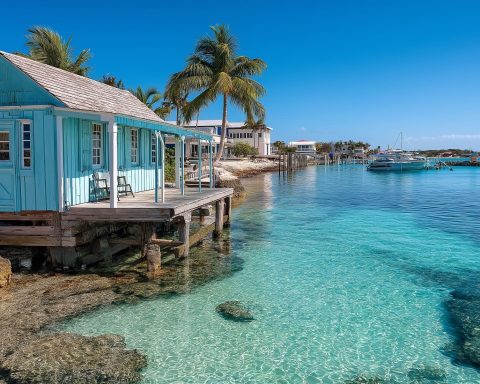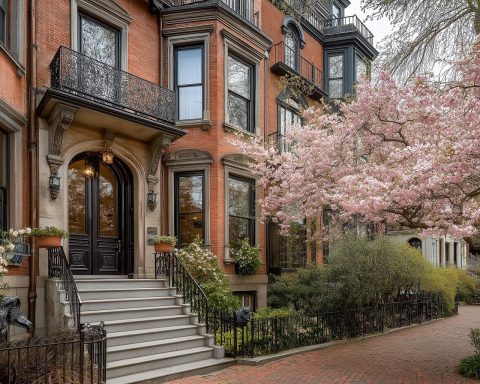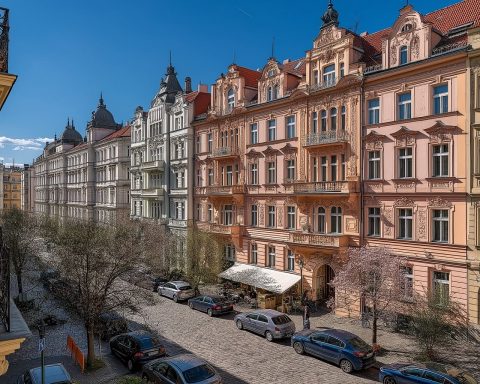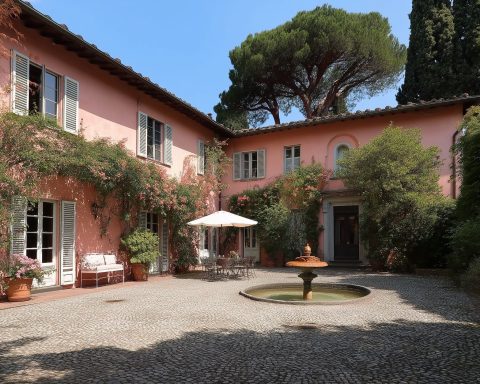Cape Town’s real estate market in 2025 is showing remarkable resilience and growth, standing out as a top performer in South Africa. Residential property prices in Cape Town have surged by around 8.5% year-on-year as of early 2025, significantly outperforming the national average of ~5.2% theafricanvestor.com. This growth continues a longer trend – Cape Town home values have risen over 140% since 2010, far above gains in other major cities theafricanvestor.com. Meanwhile, commercial real estate segments are experiencing a mixed recovery, with industrial properties booming, retail slowly rebounding (especially in tourism hubs), and the office market still stabilizing post-pandemic. This report provides a detailed look at residential and commercial trends in Cape Town for 2025, analyzes key submarkets (City Bowl, Southern Suburbs, Atlantic Seaboard, Northern Suburbs, Western Seaboard), and offers forward-looking projections through 2030. We also examine local vs. international buyer activity, and the economic, infrastructural, and social factors – from semigration to remote work – that are influencing property demand. Key data on property prices, rental yields, supply-demand dynamics, construction activity, as well as investment opportunities and risks are included, with references to government reports, real estate agencies, and property platforms for credibility.
Residential Real Estate Trends in 2025
Strong Price Growth: Cape Town’s housing market entered 2025 with robust momentum. Average home prices in the metro are now ~R3.5 million (±$200k), and the Western Cape province leads South Africa with an average property value of ~R1.8 million – the highest in the country theafricanvestor.com. Annual house price inflation in Cape Town (~8.5% in early 2025) has been well above the national rate, and for the seventh year in a row Cape Town has outpaced all other regions in growth propertyreview.co.za propertyreview.co.za. Even during recent economic headwinds, Cape Town’s home values have shown consistent real appreciation, whereas many other areas saw only modest nominal gains propertyreview.co.za. This outperformance is driven by persistent high demand and limited supply in the city’s most desirable locations. In fact, Cape Town accounted for 38% of South Africa’s total residential transaction value in 2024 despite having only ~11% of the population propertyreview.co.za – a testament to the concentration of property investment in this market.
Supply Constraints: A fundamental factor underpinning the price growth is the shortage of housing stock in prime areas. Geographical constraints (Table Mountain and the ocean) limit expansion near the city, and new construction has not kept up with demand propertyreview.co.za propertyreview.co.za. According to Stats SA, residential building activity has been declining: the number of new housing plans approved in the Cape (and SA broadly) fell by ~11.7% in 2024, and Q1 2025 saw further drops in approvals and completions globalpropertyguide.com globalpropertyguide.com. This constrained pipeline of new homes exacerbates the supply-demand imbalance, especially in central Cape Town. City officials acknowledge that “the fundamental reason well-located housing is unaffordable … is because there is not enough housing supply on the market”, and they have begun releasing inner-city land for affordable developments and fast-tracking approvals to address the shortage propertyreview.co.za propertyreview.co.za. Developers are responding with new apartment projects targeting middle-income buyers (e.g. Balwin’s affordable apartments) to increase stock propertyreview.co.za, but meaningful relief may take time. As a result, well-located properties sell extremely fast – often within weeks or even days of listing in hotspots – due to competition and scarce inventory theafricanvestor.com theafricanvestor.com.
Buyer Demographics – Locals vs. Foreigners: Cape Town attracts a mix of domestic and international buyers. Local demand has been bolstered by the Western Cape’s reputation for good governance, lifestyle, and employment opportunities. Over the past two years, a net influx of ~92,000 working-age adults (many with tertiary education) moved to the Western Cape propertyreview.co.za propertyreview.co.za. This “semigration” trend – professionals relocating from other provinces (notably Gauteng) to Cape Town – has been a major driver of housing demand. However, in 2025 semigration is moderating: rising Cape property prices and a partial return-to-office have led some to reconsider moves or even “reverse semigrate” back to Gauteng for affordability and career reasons property24.com property24.com. Nonetheless, the long-term appeal of Cape Town (better quality of life, safer communities, reliable services) ensures sustained interest, even if migration is now more selective property24.com property24.com. At the same time, foreign buyer activity in Cape Town is on the rise again in 2025. Nationwide, foreign buyers had dipped to only ~3.7% of transactions (down from 6.5% in 2008) amid economic stagnation globalpropertyguide.com globalpropertyguide.com. But Cape Town is bucking that trend: international purchasers have poured money into Cape Town’s luxury market in 2025, drawn by a favorable exchange rate and the city’s resort lifestyle. In the first five months of 2025, foreign buyers spent over R1.3 billion (≈$70 million) on Cape Town properties, including a record R700 million in April alone rei.co.za rei.co.za. Sea Point, the CBD, Camps Bay and other Atlantic Seaboard areas saw the bulk of these sales, with Atlantic Seaboard & City Bowl neighborhoods accounting for 67% of Cape Town’s property sales by value in that period rei.co.za rei.co.za. Buyers from over 40 countries (led by Germany, the UK, USA, and other EU and African nations) have been active, snapping up luxury apartments and holiday homes rei.co.za rei.co.za. For example, Hout Bay notched 37 international sales by mid-2025 (R5–25 million each), and foreign investors spent ~R530 million on Atlantic Seaboard properties in one month (April) alone rei.co.za rei.co.za. These affluent buyers are lured by Cape Town’s Mediterranean climate, scenic beauty, and modern infrastructure, and they contribute significantly to the local economy through tourism and home upgrades rei.co.za. The influx of global capital has helped push the luxury segment to new highs, with local agencies reporting that “buyers with budgets above R15 million have become the norm rather than the exception” in elite suburbs propertyreview.co.za propertyreview.co.za.
Affordability and First-Time Buyers: The flip side of rapid appreciation is reduced affordability for residents. Property prices have climbed ~160% since 2010 in Cape Town’s metro, while income growth has lagged, leaving many first-time buyers struggling to enter the market. As one banking executive noted, “Even studio apartments are going for R1 million and up in Cape Town,” pricing young professionals (the “Born Free” generation) out of central areas propertyreview.co.za. Banks are responding with 100% home loans and innovative products (e.g. allowing co-buyers) to help younger buyers, but the average home loan for under-35s (~R1.2m) still only buys a very small unit in the City Bowl propertyreview.co.za. The housing affordability challenge is most acute near employment hubs – precisely where prices are highest. To combat this, the City of Cape Town has launched initiatives like an inner-city Development Charges Fund (to subsidize infrastructure for new affordable housing) and fast-track programs for inclusive developments propertyreview.co.za. Several sites in the inner city are slated for affordable or mixed-income housing. These efforts, alongside private sector developments targeting middle-class buyers, aim to gradually ease the affordability squeeze. Still, as of 2025 the “real estate bus rolls on”, and many residents must either rent or buy in peripheral areas due to the steep price of central Cape properties propertyreview.co.za propertyreview.co.za.
Rental Market and Yields: Cape Town’s rental market remains strong in 2025, buoyed by robust tenant demand and the city’s appeal to “workation” seekers and students. Gross rental yields on apartments in Cape Town average about 9–10% (Q2 2025) globalpropertyguide.com globalpropertyguide.com, which, while a bit lower than Johannesburg’s average (~11.4%), is high by global standards and attractive for landlords. Different areas offer different returns: centrally located neighborhoods tend to command 7–8% yields (or even higher in up-and-coming inner suburbs), whereas ultra-premium coastal areas yield a more modest ~5–7% due to very high capital values theafricanvestor.com theafricanvestor.com. Table Bay and Northern Suburb locales – where purchase prices are lower relative to rents – can achieve yields toward the upper end (~8%) theafricanvestor.com theafricanvestor.com. Rental demand is fueled by young professionals, semigrants “testing out” Cape Town, and digital nomads who rent before buying celsaproperties.com celsaproperties.com. Many prospective buyers are also waiting for interest rates to drop further, so they continue renting in the interim celsaproperties.com. Consequently, vacancy rates are extremely low: nationally, long-term residential vacancy dipped to ~4.4% in early 2025, and Cape Town’s popular suburbs are even tighter theafricanvestor.com theafricanvestor.com. Some prime areas report near full occupancy, with well-priced rentals filling within days. On the short-term rental side, tourism has rebounded strongly after the pandemic – Cape Town is Africa’s most visited city – pushing Airbnb and hotel occupancies to ~65% in peak months theafricanvestor.com. In April 2025, short-stay accommodations ran at 64.6% occupancy (66% for luxury units), reflecting the city’s year-round visitor demand theafricanvestor.com theafricanvestor.com. High season (summer) sees even higher occupancy and daily rates, which has invigorated investor interest in Airbnb-friendly properties in areas like Sea Point, the V&A Waterfront, and Camps Bay. Overall, rental growth has picked up alongside the sales market: with interest rates easing and the economy stabilizing, rental inflation is expected to stay healthy in 2025, maintaining those solid yields for landlords. Property owners also benefit from Cape Town’s strong rental fundamentals – high demand, low vacancies, and tenants drawn by the city’s lifestyle and employment opportunities.
Commercial Real Estate Trends in 2025
Office Market: Cape Town’s office property segment is in gradual recovery mode in 2025, still feeling the aftereffects of the pandemic and the shift toward remote/hybrid work. Office vacancies in the CBD and some decentralized nodes remain elevated as many companies downsized space in 2020–2022. Older B-grade offices, in particular, face high vacancy and pressure on rentals. Landlords have been compelled to offer incentives to attract tenants or repurpose buildings. However, the worst seems to be over: premium (“P-grade”) office spaces in strategic hubs are starting to see renewed demand jll.com. According to JLL, newer green-certified offices in Cape Town’s tech and financial districts are performing relatively well, whereas outdated offices in secondary locations still lag jll.com jll.com. By 2025, nearly all COVID-era restrictions are gone and businesses have greater certainty, prompting some expansion. Neighbourhood flex spaces and satellite offices are also emerging as a trend, as companies adopt hybrid work and want smaller footprints closer to where employees live (e.g. hubs in Century City, Claremont, and Bellville). Still, remote work trends are an overhang: many professionals proved they can work effectively from home or co-working spaces, so tenants remain cautious about long leases. Cape Town’s office vacancy rate hovered in the teens (%) in early 2025 (varying by node), and market rentals for offices are largely flat with only slight upticks for top-grade spaces. One positive factor is Cape Town’s improved infrastructure reliability – notably the City’s investment in backup power. The City’s R2.3 billion allocation to alternative energy projects in 2024/25 is helping reduce loadshedding impacts propertyreview.co.za everythingproperty.co.za, making Cape Town offices more attractive relative to other metros plagued by power cuts. In summary, the office sector outlook is cautiously optimistic: economic growth of ~1–1.5% is forecast for 2025 (better than 2024) mendace.com, which should translate into slowly rising occupancy for well-located offices, while older offices may continue to be repurposed (some CBD buildings are being converted into apartments/hotels as part of urban regeneration). Rental levels will likely remain bifurcated – prime office rents stabilizing or growing modestly, and lower-grade office rents seeing minimal growth until excess space is absorbed.
Retail Property: The retail real estate market in Cape Town is benefiting from the economic rebound and revival of tourism, though it faces challenges from changing consumer behavior. By 2025, foot traffic in prime shopping areas (like the V&A Waterfront, Cape Quarter, and Cavendish Square) has largely recovered to pre-pandemic levels thanks to domestic spending and international tourists. Neighborhood and convenience shopping centers – those offering groceries, pharmacies, and essential services – have proven particularly resilient, with low vacancies, as consumers favor convenient local shopping jll.com. In contrast, a few large regional malls that were struggling pre-2020 (and hit by the pandemic) continue to reposition; Cape Town’s retail landscape has seen some high-profile mall sales and restructurings, such as properties from the distressed Rebosis REIT being sold off in 2024 jll.com jll.com. These transactions actually boosted overall investment volumes in 2024, but also illustrate a shift: investors are more keen on dominant malls or niche retail rather than secondary malls. Retail rents in prime tourist-frequented locations (waterfront, CBD) are rising again in 2025, and there’s strong demand for space from luxury brands and restaurants, driven by the tourism uptick. However, retailers in some categories (fashion, department stores) remain cautious given competition from e-commerce and a still-strained consumer base (high inflation in food/fuel earlier in the decade squeezed disposable incomes). The outlook for retail is mixed: service- and experience-oriented centers (food markets, entertainment, convenient services) are expected to thrive, whereas older malls without unique offerings may struggle. Overall, Cape Town’s retail property market is poised for growth in 2025/26 in line with improving consumer confidence – real retail sales in South Africa grew ~4% in early 2025 mendace.com mendace.com – but success will vary by location and format. Importantly, the city’s plan to invest R4.1 billion in transport infrastructure (2024/25 budget) propertyreview.co.za will further improve access to retail hubs, supporting the sector in the long term.
Industrial and Logistics: The industrial real estate sector is Cape Town’s standout performer in 2025. Building on a multi-year trend, demand for warehouses, distribution centers, and manufacturing space is extremely robust. In Q1 2025, industrial rentals (500 m² spaces) in South Africa rose ~7.3% year-on-year, and Cape Town led with double-digit rental growth mendace.com mendace.com. This means many Cape industrial landlords were able to increase rents by 10%+ over the year – a remarkable feat amid broader economic challenges. The key driver is persistently low vacancy: the national industrial vacancy rate is only ~3.7% (Q1 2025) and even lower in Cape Town’s prime industrial nodes mendace.com mendace.com. Cape Town’s warehouses are effectively full, especially in areas like Montague Gardens, Epping, Airport Industria, and Bellville South – any new space coming to market is quickly absorbed, often with multiple tenants vying for it. Minimal speculative development in recent years, coupled with surging demand from e-commerce and logistics companies, has created a tight market mendace.com mendace.com. For example, as online retail expands, firms need modern distribution centers (with high stacking heights and advanced specs), and existing inventory is limited mendace.com mendace.com. Big property funds like Fortress and Growthpoint report near-zero vacancies (1–2%) in their logistics portfolios, underscoring the demand for “next-generation” warehousing mendace.com. Investor appetite follows suit – capitalization rates for prime industrial assets in early 2025 sit around 9.4% net yield (on long leases) and have been compressing, especially in Cape Town which boasts some of the lowest cap rates (highest values) in the country for industrial property mendace.com mendace.com. In other words, investors are willing to pay a premium for Cape industrial buildings because of their strong rental growth and low risk of vacancy. The economic backdrop also favors industrial: while manufacturing output is somewhat weak nationally, the retail trade (which drives warehouse need) grew ~4% in Q1 2025 mendace.com mendace.com, and the stabilization of electricity supply (thanks to fewer blackouts and more private generation) is helping factories and distributors operate more smoothly mendace.com. Looking ahead, Cape Town’s industrial market is expected to stay buoyant. Development of new industrial parks is cautiously picking up (e.g. along the N7 corridor and in Northern Suburbs) but high construction costs and land availability limit how fast new supply can come. Thus, rents are projected to continue rising above inflation in 2025–2026, albeit possibly at a slightly moderating pace if interest rates remain steady. Industrial real estate is clearly an investment hotspot for Cape Town, offering a combination of income and growth that outpaces other property segments mendace.com mendace.com.
Key Submarkets within Cape Town
Cape Town’s residential landscape is often broken down into several key submarkets, each with unique characteristics. Below we analyze major areas including the City Bowl, Atlantic Seaboard, Southern Suburbs, Northern Suburbs, and Western Seaboard (West Coast), covering current property prices, typical rental yields, and recent trends in each.
Submarket Overview and Property Metrics (2025):
| Submarket | Apartment Price (R/m²) | Typical Rental Yield | Market Profile |
|---|---|---|---|
| City Bowl (incl. CBD & surrounding) | ~R45,000/m² theafricanvestor.com | ~7–8% theafricanvestor.com | Central urban luxury; high demand for both upscale apartments and heritage homes. Stable market with vibrant city lifestyle globalpropertyguide.com theafricanvestor.com. Strong rental demand from professionals, students, and digital nomads. |
| Atlantic Seaboard (Sea Point, Camps Bay, Clifton, etc.) | ~R60,000/m² theafricanvestor.com | ~6–7% theafricanvestor.com | Ultra-premium coastal strip; Cape Town’s most expensive real estate. Luxury apartments and villas with ocean views. Limited supply keeps prices rising; international buyers active globalpropertyguide.com rei.co.za. Yields lower due to high prices, but capital appreciation and Airbnb demand are strong. |
| Southern Suburbs (Rondebosch, Claremont, Constantia, etc.) | ~R35,000/m² theafricanvestor.com | ~6–7% theafricanvestor.com | Family-oriented, leafy suburbs with top schools and amenities. Popular with local families and semigrants – very high livability and safety. Steady price growth and stable demand even in downturns. Freehold houses and townhouses most sought after, though apartments near universities (Newlands, Observatory) also in demand. |
| Northern Suburbs (Durbanville, Bellville, etc.) | ~R28,000/m² theafricanvestor.com | ~6–8% theafricanvestor.com | Emerging growth areas offering more space for money. Mixed profile: established neighborhoods plus new developments. Appealing to both young professionals (e.g. apartments in Tyger Valley area) and families (homes in Durbanville). Healthy rental yields ~7% average as prices are more affordable. Significant new housing estates and business parks are boosting this region. |
| Western Seaboard (Table View, Blouberg, West Coast) | ~R27,000/m² theafricanvestor.com | ~6–7% theafricanvestor.com | Coastal “value-for-money” zone north of the city. Known for beaches (Bloubergstrand) and a relaxed lifestyle – attractive to surfers, remote workers, and families. Property here is cheaper than the Southern suburbs or City Bowl, with extensive modern apartment complexes and security estates. Strong semigration interest during the pandemic era. Good rental demand, especially for ocean-view apartments and short-term holiday lets. |
Sources: Market estimates mid-2025 theafricanvestor.com theafricanvestor.com. Atlantic Seaboard & City Bowl noted as highest-priced areas, while Table View/Blouberg offer more accessible entry points.
City Bowl: The City Bowl (the city center and immediate surrounding neighborhoods like Gardens, Oranjezicht, Tamboerskloof, and Vredehoek) is one of Cape Town’s most prized submarkets. It combines proximity to the CBD (jobs) with a cosmopolitan lifestyle and Table Mountain views. In 2025, demand for City Bowl properties is extremely high. This area is seen as “recession-proof” to an extent – its central location and limited space mean values hold up even in tougher times globalpropertyguide.com. Average apartment prices are around R45k per square meter, among the highest in SA after the Atlantic Seaboard theafricanvestor.com. Many City Bowl apartments are being bought for short-term rental investment or by young professionals; there’s strong tenant appetite for downtown living (including corporate rentals). Yields around 7–8% are typical for apartments theafricanvestor.com, thanks to that rental demand. The CBD itself has seen a boost in residential conversions (old office buildings into flats), gradually increasing housing stock. Areas like Gardens and Oranjezicht, with their mix of apartments and Victorian homes, remain popular for those who want a slightly quieter environment just outside the downtown hustle. The City Bowl also benefits from an influx of remote workers and digital nomads – many foreigners now base themselves in Cape Town for part of the year on “workcation” visas, and they often choose City Bowl or Atlantic Seaboard for the connectivity and culture. This has bolstered both property sales and high-end rental in these areas theafricanvestor.com theafricanvestor.com. Looking ahead, the City Bowl’s growth prospects remain strong: with very little new land available, any uptick in demand translates quickly into price increases. As one indicator, time-on-market here is very low – quality listings can sell within weeks (or even days) with multiple offers theafricanvestor.com theafricanvestor.com. Investors continue to see the City Bowl as a solid bet for long-term appreciation and rental income.
Atlantic Seaboard: The Atlantic Seaboard is Cape Town’s “platinum coast”, stretching from the V&A Waterfront through Mouille Point, Sea Point, Bantry Bay, Clifton and down to Camps Bay and Hout Bay. This strip is home to some of Africa’s most expensive real estate. Luxury apartments and mansions here regularly sell for tens of millions of rand. In early 2025, apartments average R55k–R60k/m² (with ultra-luxury units far exceeding that) theafricanvestor.com. The Atlantic Seaboard market in 2025 is thriving: agents report that well-priced high-end homes often get snapped up within days and that stock shortages are a real issue propertyreview.co.za propertyreview.co.za. For instance, in January 2025, Pam Golding Properties noted record sales like R47m and R46.5m homes in Clifton (both to local buyers), signaling unabated appetite in this segment blog.pamgolding.co.za. International buyers are especially drawn to the Atlantic Seaboard – the combination of seaside glamour and a weak rand makes these properties appear “cheap” in USD or EUR terms. Areas like Sea Point (which has a mix of luxury condos and more affordable flats) have seen numerous foreign purchases, including from American buyers in 2025 rei.co.za. Camps Bay and Bantry Bay remain marquee locations for wealthy buyers (local and foreign) seeking vacation homes with ocean and sunset views. Rental yields around 6% here theafricanvestor.com may seem modest, but investors bank on capital appreciation and significant short-term rental income during tourist season. It’s not uncommon for a Sea Point or Camps Bay villa to earn extremely high nightly rates on Airbnb or for film location rentals, which can push effective yields higher. The Atlantic Seaboard also benefits from prestige and lifestyle factors: proximity to beaches, top restaurants, and the city, plus security (many buildings have excellent security, and neighborhoods like Clifton are relatively safe). The outlook for this submarket is continued growth. With virtually no large tracts left for development, any new projects are boutique and high-end, meaning supply will remain tight. As long as Cape Town’s international appeal holds, the Atlantic Seaboard is likely to see 5–8%+ annual price growth going forward (some forecasts even call for double-digit growth in peak segments) theafricanvestor.com theafricanvestor.com. Risks would include global economic downturns affecting foreign buyer budgets, but even then, the scarcity factor provides a cushion.
Southern Suburbs: The Southern Suburbs are a broad area south-east of the city center, including Rondebosch, Newlands, Claremont, Bishopscourt, Constantia, Wynberg, and further south to Lakeside/Muizenberg. This area is known for its leafy residential feel, top schools (e.g. UCT in Rondebosch, many excellent private schools), and family-friendly amenities (parks, shopping, golf courses, wine farms). Properties range from upscale mansions in Constantia and Bishopscourt, to more moderate family homes and apartments around Claremont and Kenilworth. In 2025, Southern Suburbs remain in high demand especially among local buyers. The presence of educational institutions means there’s always a base of staff and families looking to live nearby. Prices average ~R35k/m² for apartments (Claremont’s modern apartments, for instance) theafricanvestor.com, but large houses on spacious plots in upper Constantia or Bishopscourt fetch premium prices well into eight figures (Rands). The area’s appeal is reflected in rapid sales for good properties – agents note that secure family homes in the Southern Suburbs often see bidding wars given the shortage of supply versus the number of eager buyers property24.com. Rental yields around 6–7% are common theafricanvestor.com; notably, student accommodation around Rondebosch Observatory can yield higher due to multiple tenants per house. Constantia and Bishopscourt also draw international interest (e.g. for wine estate living), though not at Atlantic Seaboard volumes celsaproperties.com. The Southern Suburbs are considered a “safe bet” for investment – they enjoy very low crime relative to many other parts of SA, thanks to active community security and affluent municipalities theafricanvestor.com theafricanvestor.com. Going forward, price growth is expected to be steady here (perhaps 4–6% annually), underpinned by ongoing semigration of families seeking the lifestyle and by limited new housing (except some densification projects in Claremont node). One emerging trend is renewal of Claremont/Wynberg with mixed-use developments (some older commercial sites turning into residential complexes), which could add modern inventory to meet demand. Overall, the Southern Suburbs combine stability with moderate growth – an attractive proposition for longer-term investors and homebuyers alike.
Northern Suburbs: Cape Town’s Northern Suburbs, including areas like Bellville, Durbanville, Brackenfell, Kraaifontein, Plattekloof, and Parow, offer a diverse range of neighborhoods that are generally more affordable than the southern or coastal parts of Cape Town. Traditionally viewed as middle-class family suburbs, many parts of the Northern Suburbs are now booming with new development – from residential estates to office parks – especially around the Tyger Valley/Waterfront and Durbanville areas. In 2025, the Northern Suburbs have some of Cape Town’s strongest rental yields (often 7–8%) because property prices are lower (apartments ~R28k/m², houses often R15k–20k/m²) theafricanvestor.com theafricanvestor.com, while tenant demand is solid theafricanvestor.com theafricanvestor.com. For example, young families and first-time buyers who can’t afford Rondebosch will consider Durbanville or Kraaifontein for a house, keeping those markets liquid. One cited trend is that the Northern Suburbs are emerging as a strong performer for long-term rentals, with family renters attracted by good schools and new job nodes (like the Bellville office cluster) theafricanvestor.com theafricanvestor.com. Security estates are a big draw in areas like Burgundy Estate, Pinehurst, and along the N1 corridor, offering modern homes with communal facilities at relatively reasonable prices. The Parklands and Sunningdale area (sometimes grouped with Western Seaboard) also lies north and is one of the fastest-growing residential areas in SA by number of new houses – these are typically more entry-level and attract many buyers from other provinces. The Northern Suburbs benefit from infrastructure like the N1 and N7 highways for commuting, and the City has plans to improve public transport links here in coming years. Market outlook for Northern Suburbs: continued growth and “upgrading” of the area’s profile. As Cape Town expands, these suburbs are increasingly seeing upscale amenities (e.g. Durbanville’s growing wine route tourism, new private hospitals and malls). Property price growth of ~5% annually is likely, with certain pockets (near new developments or good schools) possibly higher. Investors find value here because one can still buy apartments or townhouses at far lower cost than in central Cape Town, yet enjoy decent rental returns and the potential for capital appreciation as the areas develop.
Western Seaboard (West Coast): The Western Seaboard refers to the coastal suburbs north of Cape Town along the Atlantic Ocean, roughly from Milnerton through Blouberg to Melkbosstrand. It includes Table View, Flamingo Vlei, Big Bay, and others often popular for their beach lifestyle and views of Table Mountain across the bay. This area experienced a construction boom in the 2010s and remains attractive for those seeking affordable coastal living. Current apartment prices average ~R27k/m² (one of the cheapest coastal rates in greater Cape Town) theafricanvestor.com, yet the area offers modern apartments, surfing beaches, and a growing restaurant scene, which draw both owner-occupiers and tenants. Bloubergstrand and Big Bay have a mix of luxury villas and holiday flats; a record sale of R16.5 million was achieved in 2025 in Sunset Beach (Blouberg) to a foreign buyer rei.co.za rei.co.za, showing that even this “value” area sees high-end interest. Typical yields around 6–7% theafricanvestor.com can be obtained, and short-term rentals cater to tourists/kite-surfers especially in summer. The Western Seaboard was a hotspot for semigration during COVID, as many people moving from Gauteng or other regions found they could get a spacious home or seaside apartment here at a fraction of Southern Suburbs prices. As a result, development in Table View/Parklands exploded, with thousands of new homes – though this has led to some oversupply in entry-level sectional title units and traffic congestion issues on the main roads (a downside of the rapid growth). The City is extending the MyCiTi BRT bus service to this corridor to improve connectivity, which is part of ongoing infrastructure upgrades. Going forward, the Western Seaboard is expected to remain a “growth frontier” – there’s still land for expansion further north (towards Melkbos), and prices are rising steadily but from a low base. Investors looking for capital growth potential may find it here, as continued migration and eventual economic expansion in Cape Town will likely raise values. However, the area’s performance will depend on maintaining safety and services as it densifies. Currently it enjoys a “good” safety rating compared to many SA suburbs theafricanvestor.com, but continued investment in policing and transit will be key to sustaining its appeal.
Factors Influencing the Market
A number of macro and local factors are shaping Cape Town’s property market in 2025 and will continue to do so in coming years:
- Economic Conditions & Interest Rates: After years of sluggish growth, South Africa’s economy is projected to improve slightly in 2025 (around 1–1.5% GDP growth vs. 0.6% in 2024) mendace.com. The Western Cape in particular has outperformed, with 2024 seeing a 3.1% rise in formal jobs in the province versus 1.2% nationally propertyreview.co.za propertyreview.co.za. Cape Town’s economy is diversified – strong in finance, tech (growing ~8% annually), and green industries – which boosts middle-class housing demand propertyreview.co.za. Importantly, inflation has been easing, allowing the South African Reserve Bank to begin cutting interest rates. After aggressive hikes pushed the prime lending rate to 11.75% in mid-2023, the trend reversed – by May 2025 the repo rate was down to 7.25% (prime ~11%) following a series of 25bps cuts globalpropertyguide.com globalpropertyguide.com. These rate cuts are a tailwind for real estate: lower mortgage rates improve affordability, spurring buyer activity celsaproperties.com celsaproperties.com. Indeed, banks reported a >10% jump in home loan applications in early 2025 as rates stabilized theafricanvestor.com. Looking ahead, continued moderate inflation and prudent monetary policy (SARB targeting 4.5% CPI mid-point) should keep interest rates in check – some forecasts even see further slight cuts into 2026 theafricanvestor.com theafricanvestor.com. Economic risks remain (high public debt, power supply issues, global market volatility), but if the Western Cape continues to attract investment (over R14.7 billion was invested into Cape Town’s green economy in 2024 propertyreview.co.za propertyreview.co.za), the local property market will benefit from job creation and an influx of skilled workers.
- Infrastructure Developments: Cape Town’s relative advantage in infrastructure and service delivery is a major market driver. The city consistently ranks above other South African metros in terms of reliable utilities and governance, which is a draw for businesses and homebuyers propertyreview.co.za. The City of Cape Town’s budget for 2024/25 included a R12.6 billion infrastructure investment, focusing on critical needs propertyreview.co.za. Notably, R2.3 billion is earmarked for alternative energy projects (solar, IPPs, battery storage) to lessen dependence on Eskom and keep the lights on propertyreview.co.za everythingproperty.co.za. Additionally, R4.1 billion is allocated to transport upgrades propertyreview.co.za – this covers expansions of the MyCiTi bus rapid transit system, road improvements (e.g. the N1/N2 upgrades and new highways in the northern corridor), and possibly rail rehabilitation. These investments not only improve daily life for residents (shorter commutes, fewer outages) but also open up new areas for development. For example, expansion of transit links in the Northern Suburbs or West Coast can raise property values by making those areas more accessible. Another infrastructural boost is in water security: after the 2018 drought, Cape Town has built resilience (desalination plants, aquifer use), which reassures investors about the city’s sustainability. By 2030, the city plans significant increases in water supply and other utilities to support a growing population infrastructurenews.co.za. All told, Cape Town’s proactive infrastructure approach – exemplified by large capital budgets – “demonstrates a commitment to maintaining standards” even as national infrastructure deteriorated everythingproperty.co.za. This factor is key in the city’s property market “defying” broader SA challenges everythingproperty.co.za, as one industry piece put it.
- Tourism and Hospitality: Tourism is a cornerstone of Cape Town’s economy and has a direct impact on real estate, particularly in short-term rentals, hotels, and hospitality-linked commercial property. After the pandemic slump, 2024 and 2025 saw a strong recovery in international tourist arrivals to Cape Town (helped by global travel resurgence and events like the Cape Town E-Prix, etc.). Cape Town is regularly Africa’s top tourist city, and this drives demand for Airbnb apartments, guesthouses, and second homes. The Atlantic Seaboard and City Bowl see a large portion of this activity – short-let yields can be very high in peak season, encouraging investors to buy apartments specifically for Airbnb use theafricanvestor.com theafricanvestor.com. The tourism boom also supports the luxury market (foreigners often purchase holiday homes) and encourages development of new hotels and mixed-use precincts (e.g. Harbour Arch development on the Foreshore). In commercial terms, tourist footfall boosts retail and restaurant occupancy in areas like the Waterfront, Camps Bay, and CBD, which in turn keeps those commercial rents and property values buoyant. Looking ahead, Cape Town’s tourism prospects remain positive barring global disruptions – it’s a long-haul destination, so any future pandemic or severe travel restriction could again hit the market, but otherwise steady growth is expected. A notable trend is the rise of “digital nomad” tourists: people who come on a tourist visa but stay for several months working remotely. The government has mulled a special Remote Work Visa to make South Africa more attractive to these long-stay visitors xpatweb.com. Cape Town, with its scenery and cafes/co-working infrastructure, would likely be a prime beneficiary if that visa is implemented, translating into more rental demand and perhaps more sales if nomads choose to put down roots.
- Semigration and Internal Migration: The movement of South Africans from other provinces to the Western Cape (semigration) has been a significant driver of housing demand over the past decade. Cape Town’s perceived better governance, safety, schools, and lifestyle led thousands of families and retirees to relocate from Gauteng, KZN, and elsewhere. As noted, this trend is still present but evolving. Initial waves (post-2020) saw a surge of interest due to remote work and disillusionment with some other cities’ service delivery property24.com. By 2025, semigration has not disappeared – estate agents still report a steady inflow – but it has leveled off from the frenzy, partly because Cape Town became a victim of its own success with soaring prices property24.com property24.com. Also, some companies now require more in-office days, pulling a few professionals back to Johannesburg/Pretoria for career reasons property24.com. Nevertheless, the Western Cape remains a net gainer of migrants. There’s also a pattern of semigrants choosing smaller towns just outside Cape Town or in other parts of the province (e.g. Langebaan, Yzerfontein, Hermanus) to avoid city congestion and costs, while still enjoying the coastal lifestyle property24.com. This has led to booming property markets in those satellite towns. Within Cape Town, semigration sustains demand in upper-middle-class neighborhoods and for secure estates. The demographic profile of semigrants (often high-income, skilled individuals) is very favorable for the property market – they have the purchasing power for R3m+ homes. As long as the Western Cape continues to outperform in governance and quality of life metrics, semigration will likely support Cape real estate. Even if the pace is slower, it contributes to organic demand growth each year. Policymakers in Gauteng are eyeing this trend (there’s talk of how to “win back” residents), so it’s a space to watch; any success in rejuvenating other metros could slightly ease the pressure on Cape Town’s market rei.co.za. But the consensus is that semigration is a long-term phenomenon tied to structural provincial differences, and Cape Town will remain a top destination for South Africans who have the means to move.
- Remote Work and Lifestyle Shifts: The rise of remote and hybrid work has had a two-fold impact. First, it allowed more people (both South Africans and foreigners) to choose their location irrespective of office – many chose Cape Town for its scenery and lifestyle, which boosted demand for housing from 2020 onwards. Some have dubbed this “Zoom town” effect as a new form of migration: people bringing their big-city salaries to Cape coastal towns businesstech.co.za. Cape Town was a prime beneficiary. However, a 2025 report suggests the initial remote-work relocation trend has cooled – some early movers found it unsustainable career-wise and returned to economic centers businesstech.co.za property24.com. Large companies have also pulled more staff back to offices part-time (the “hybrid model”), meaning living hundreds of kilometers away isn’t feasible for everyone. The net effect is that remote work permanently expanded the pool of buyers interested in Cape Town (including international remote workers), but it is not an unlimited demand surge. Secondly, remote work changed buyer preferences in housing. With people spending more time at home, space for a home office, good internet connectivity, and backup power became critical features. In Cape Town, developers and sellers responded by marketing properties as “remote-work friendly” – e.g. new apartments with business centers, or homes with studies and fiber connectivity celsaproperties.com celsaproperties.com. Many buyers will not compromise on electricity reliability either, leading to a spike in installations of solar panels and inverters; properties with these pre-fitted command price premiums. The remote work era also boosted demand for secure, low-maintenance homes (since people can travel often if they work remotely) celsaproperties.com. So, high-end sectional title units and estates became more attractive relative to large standalone houses that require upkeep. In summary, remote/hybrid work remains a supportive factor for Cape Town real estate but in a more balanced way: it has reinforced the city’s appeal to a global workforce and influenced housing design, even if it’s not the frenzy it was in 2020–21.
- Construction and Development Trends: As noted under supply, new construction in Cape Town has been subdued in recent years. Developers face high building costs (materials, load-shedding backup, etc.) and regulatory hurdles, especially in well-located areas due to zoning and heritage considerations. The result is that most new developments are either on city outskirts or are smaller infill projects. In 2025, there are several noteworthy developments: Harbour Arch, a multi-billion rand mixed-use precinct on the Foreshore, is under construction and will add apartments, hotels, and offices in coming years. Amazon’s planned African HQ in the River Club (Observatory) area – a large mixed project with offices, retail, and affordable housing – has been in the works and, if it proceeds, will be a major economic boost, potentially raising property values in adjacent neighborhoods. Battery Park and other Waterfront extensions have improved the CBD fringe. In the Northern Suburbs, big housing developments around Kraaifontein/Durbanville (like Buh-Rein Estate and others) continue to add stock for the growing population. In the Cape Flats and outskirts, the government is focusing on affordable housing projects to address the housing backlog – this won’t directly affect middle-class market pricing, but it can improve socio-economic stability. Additionally, green building is trending: many new commercial buildings and high-end homes incorporate solar power, rainwater harvesting, and other sustainable features. Such features are increasingly valued by buyers (for cost-saving and environmental reasons). Over the next few years, construction activity is expected to pick up modestly as interest rates soften and confidence returns. But large-scale expansion is still limited by geography (Cape Town can’t sprawl infinitely due to mountains and ocean) and by cautious developer financing. Supply will likely remain behind demand, which supports property values but also calls for careful urban planning to avoid excessive strain on infrastructure.
- Government Policy and Regulation: South Africa’s property rights framework is generally solid (foreigners can own property with few restrictions, aside from needing to register funds) globalpropertyguide.com globalpropertyguide.com. This openness partly explains foreign interest. Going forward, any major policy shifts – e.g. around land expropriation (which has been debated nationally), changes in property tax, or stricter rental regulations – could impact investor sentiment. Currently, Cape Town’s city government is seen as investor-friendly and proactive; for instance, it’s fast-tracking building plan approvals and offering incentives for downtown residential conversion. The national political climate is another factor: 2024’s general election resulted in a unique Government of National Unity (coalition) between major parties mendace.com. While there have been policy disagreements within the coalition, the hope is that a stable political environment will improve confidence. If political instability or unfriendly property policies were to arise, that’d pose a risk. On the positive side, incentives for first-time buyers (like increased transfer duty exemptions – the threshold was expected to rise by 10% globalpropertyguide.com globalpropertyguide.com) and interest rate cuts are policy measures supporting the market’s lower end. Cape Town specifically may implement density bonuses or other measures to encourage affordable housing developments. The regulatory environment, thus, is something investors watch but currently it’s reasonably stable and even supportive of growth in the Cape property sector.
Current Market Data Highlights (2025)
To summarize the current market by the numbers:
- House Price Growth: +8.7% annual (Cape Town metro average) as of early 2025 propertyreview.co.za propertyreview.co.za. Prime coastal suburbs seeing even higher (~10%+) growth theafricanvestor.com theafricanvestor.com. Cape Town has led SA in house price inflation for several years running.
- Average Prices: ~R3.5 million average transaction price city-wide theafricanvestor.com. Atlantic Seaboard and City Bowl median prices are much higher (often R5–10 million+). Western Cape’s provincial average ~R1.8m is highest in country theafricanvestor.com. By comparison, Gauteng’s average is around R1.3m propertyreview.co.za.
- Rental Yields: ~9.4% gross average yield for apartments in Cape Town (Q2 2025) globalpropertyguide.com. Suburban buy-to-let yields ~6–8% depending on area theafricanvestor.com theafricanvestor.com. City Center/central suburbs can exceed 8% due to high rental demand theafricanvestor.com. Luxury coastal yields 5–6% (lower yield, higher appreciation) propertyreview.co.za propertyreview.co.za.
- Rental Vacancies: Long-term vacancy in Cape Town estimated <4% in top areas (national avg 4.4%) theafricanvestor.com. Short-term rental occupancy ~65% on average, peaking higher in summer theafricanvestor.com.
- Sales Volume: ~R2.46 billion in residential sales in first 5 months of 2025 (citywide) – highest 5-month total in 5 years rei.co.za. Activity was especially brisk in April, boosted by foreign buying. Transaction volumes are still ~16% below pre-pandemic levels by unit count globalpropertyguide.com globalpropertyguide.com, but rising sentiment indicates a recovering market.
- Time on Market: ~12 weeks average in early 2025 (slightly longer than 2024’s 11 weeks) for SA homes globalpropertyguide.com globalpropertyguide.com. In Cape Town’s high-demand areas, many properties sell in under 2 months, some within weeks theafricanvestor.com. Well-priced listings in Atlantic Seaboard/City Bowl can get multiple offers almost immediately.
- Construction Pipeline: Building plan approvals in Cape Town (and SA generally) are down. In 2024, new residential unit approvals fell by ~12% globalpropertyguide.com. Q1 2025 saw further declines, particularly a -27% y/y drop in flat/townhouse approvals globalpropertyguide.com. This contraction in new supply is a notable stat that points to future shortages in certain segments if demand stays high.
- Interest Rates: Prime rate ~11.0% (mid-2025), down from 11.75% a year prior globalpropertyguide.com globalpropertyguide.com. Mortgage rates (variable) around 10.5–11%, with further slight reductions possible as SARB eases policy globalpropertyguide.com globalpropertyguide.com.
- Foreign Buyer Share: In 2023/24, foreigners were <4% of buyers nationally globalpropertyguide.com. In Cape Town 2025, certain areas had 20–30% foreign buyers (e.g. Atlantic Seaboard in April 2025) rei.co.za rei.co.za. Overall foreign inflows in Cape Town reached record levels in early 2025 (700M+ Rand in a single month) rei.co.za rei.co.za.
These data points illustrate a market that is growing in value, tight in supply, and attracting investment, albeit with some affordability concerns and uneven performance across segments.
Investment Opportunities and Risks
Opportunities: Cape Town’s property market offers diverse investment opportunities in 2025:
- High-Growth Nodes: Certain areas are primed for above-average growth. For instance, emerging central neighborhoods like Woodstock, Salt River, and Observatory are undergoing gentrification and infrastructure upgrades, leading to both strong rental yields (>8%) and capital gains potential theafricanvestor.com theafricanvestor.com. These city-adjacent suburbs have new mixed-use developments and appeal to young professionals – a recipe for future price appreciation as they transform into trendy districts.
- Luxury and Prime Properties: At the top end, Cape Town’s luxury real estate (from Clifton villas to penthouses at the Waterfront) remains a sought-after asset class globally. Investors in this segment bank on 8–10% annual price appreciation (as seen recently) plus a hedge against rand depreciation propertyreview.co.za propertyreview.co.za. International buyers in particular view Cape Town prime property as a “safe haven” for lifestyle and investment, given its relatively low price (by global city standards) for oceanfront luxury. Those with holding power can see significant gains, as evidenced by the 150%+ price increases on the Atlantic Seaboard over the past decade theafricanvestor.com theafricanvestor.com.
- Rental Investments: With rental demand high, buy-to-let opportunities are attractive. Apartments in areas with strong tenant pools – e.g. near universities (Rondebosch, Observatory), or CBD and Century City for young professionals – can generate reliable income. Nationally, landlords are enjoying spectacularly high gross yields ~10% globalpropertyguide.com globalpropertyguide.com, and while Cape Town’s yields are slightly lower on average, they are still very healthy by international standards. Well-chosen properties can be cash-flow positive from day one. Student housing is one niche: properties near UCT or Stellenbosch University (in the broader metro) can be optimized for student rentals, often yielding above normal market rates.
- Industrial and Logistics Real Estate: As detailed earlier, the industrial sector is booming. Investors might consider acquiring warehouses or industrial units, or REITs focused on logistics parks. With vacancies ~3% and rising rents mendace.com mendace.com, industrial properties in Cape Town offer steady income (net yields ~9–10%) and are likely to see capital growth as yields compress. Key areas include Montague Gardens, Epping, and new logistics nodes near the airport or along the N7, where demand is highest.
- Development and Flipping: While property flipping has slowed somewhat (due to moderate overall growth and transaction costs) theafricanvestor.com theafricanvestor.com, opportunities still exist in renovating older homes in good locations. For example, purchasing an old house in Plumstead or Observatory and modernizing it can unlock significant value, as buyers pay premiums for move-in-ready, modernized homes. Additionally, small-scale development (like building two townhouses on a subdivided suburban lot) can yield profits given the housing shortfall in popular areas. The City’s fast-tracking of approvals in certain zones can help developers in the <R5m segment.
- Diversification via REITs or Crowdfunding: Investors not wanting direct property ownership can look at real estate funds/REITs that have strong Western Cape portfolios, or newer crowdfunding platforms that allow small stakes in property projects. Given Cape Town’s outperformance, having exposure to this region could uplift an SA property portfolio’s returns.
Risks: Investors should also be mindful of risks and challenges in the Cape Town property market:
- Economic and Political Risk: South Africa’s macroeconomic situation – high unemployment, public debt, and electricity supply concerns – poses a systemic risk. While Cape Town often outperforms, a severe national recession or political crisis (e.g. instability in the coalition government, or adverse policy like aggressive land reform without compensation) could dampen property values and foreign investment. Rising interest rates, if inflation surges again, are another risk – though currently the outlook is stable to improving. Global economic downturns (recession in Europe/US) could reduce foreign buyer interest and tourism, directly impacting Cape Town’s top-end market and short-term rental sector.
- Affordability and Demand Softeners: There’s a potential risk that affordability constraints will eventually cap demand, especially in mid-tier segments. If prices keep rising faster than incomes, a larger portion of local buyers could be priced out, leading to a demand slowdown. Already, the city is seeing younger buyers struggle to purchase propertyreview.co.za. Mitigating this, low interest rates and innovative financing are helping, but if those tailwinds reverse, demand at certain price points might weaken. A related issue is emigration – if more South Africans emigrate overseas (a trend among some skilled professionals due to national issues), that could reduce high-end domestic demand (though thus far Cape Town’s net migration is positive, not negative).
- Supply Surge in Certain Areas: While overall supply is constrained, specific areas could face a temporary oversupply. For example, the Parklands/Table View area had a flood of new homes built; investors there might find rent competition high and capital growth slow until the oversupply is absorbed. Similarly, if a large number of new apartment blocks come online simultaneously in the CBD or Woodstock, rent and sale prices in those micro-markets could stagnate for a while. The key is to research development pipelines in the target area.
- Infrastructure Constraints: Cape Town’s infrastructure is generally good, but not infallible. The 2018 drought showed environmental shocks can happen. The city projects needing major increases in water and power supply by 2030 infrastructurenews.co.za. Delays or issues in these expansions could strain resources as the population grows. Traffic congestion is already an issue in peak times; if transport projects lag, areas could become less attractive due to commute issues. Also, while the city is mitigating power cuts with alternative energy, should national power crises worsen unexpectedly, all property markets would suffer from reduced business activity and quality of life.
- Climate and Environmental Risks: Cape Town’s coastal properties face some long-term climate risks – rising sea levels and more frequent storms could affect low-lying coastal neighborhoods (though significant impacts are likely decades out and being studied). Wildfires in the hot, dry summers are another concern (the mountains and forests near suburbs like Hout Bay or Constantiaberg have seen fires). Such events can impact insurance costs and occasionally damage property. The city’s strong environmental management helps, but these are factors to keep in mind for certain locales.
- Rental Market Regulatory Changes: A smaller risk, but worth noting: there are periodic discussions about stricter regulation of Airbnb in Cape Town (to protect the hotel industry or prevent residential block nuisances). If the city were to cap short-term rentals in residential areas, that could hit investors who rely on Airbnb yields. Currently, no major restrictions are in place beyond requiring registration in some cases. Likewise, if national rent control or stronger tenant-right laws were introduced (unlikely in the short term, but tenant advocacy is rising due to high rents), that could affect landlord returns.
In essence, investors should take a balanced approach – the opportunities for growth and income in Cape Town real estate are among the best in South Africa, but one should diversify across segments and not over-leverage, remaining mindful of the broader economic context.
Outlook and Projections through 2030
Looking ahead, Cape Town’s property market is expected to retain positive momentum through the rest of the decade, though at a more moderate and sustainable pace. Medium-term forecasts indicate annual price growth in the 3%–7% range through 2030, depending on the segment theafricanvestor.com theafricanvestor.com. Prime areas (Atlantic Seaboard, City Bowl, Constantia) are projected toward the higher end of that range (or beyond, if foreign demand stays strong), while affordable segments may be on the lower end as new developments add supply theafricanvestor.com theafricanvestor.com. Several factors underpin this outlook:
- Continued Demand vs. Limited Land: The fundamental mismatch – high demand and limited developable land in Cape Town’s most desirable areas – is not going away. Barring a major economic shock, Cape Town should see steady inflows of buyers (both local upgraders and new migrants to the city) each year. By 2030, the city’s population will be larger and likely wealthier on average, given the skilled migration patterns. This suggests a persistent upward pressure on housing. Desirable coastal and mountain-adjacent zones will remain supply-constrained, leading to above-average capital growth (maintaining Cape Town’s price premium over Joburg/Durban). Some forecasts note Cape Town home values could accumulate +30% or more by 2030 (which is consistent with ~5% compound annual growth) theafricanvestor.com theafricanvestor.com. In comparison, the national market might grow slower, possibly around inflation+1-2%.
- Economic and Income Growth in Western Cape: If the Western Cape continues its current trajectory – attracting investment, creating jobs in tech/finance/green energy – it will support the property market. Higher average incomes (the province already leads in household income propertyreview.co.za propertyreview.co.za) increase purchasing power for housing. The Western Cape government’s pro-business stance could make the region a magnet for companies, further driving urban real estate needs (both residential and commercial). By 2030 we may also see new economic hubs in the Cape (for example, Atlantis as a green tech hub, or continued growth of the Cape Winelands tech scene) which can create new property hot spots.
- Infrastructure & Development Plans: The City’s forward plans (Integrated Development Plan, etc.) include goals up to 2030 that favor densification along transit corridors, more affordable housing, and improved public transport. As these plans come to fruition, they can unlock property value in new nodes (e.g. along the revamped Central train line, or in mixed-use precincts). For instance, a successful rollout of MyCiTi bus routes to the deep suburbs and outlying towns might make living further out more attractive, spreading demand and possibly stabilizing central prices. Conversely, it also opens investment opportunities in currently underdeveloped areas which, by 2030, could become thriving neighborhoods.
- Commercial Real Estate Evolution: By 2030, Cape Town’s commercial property landscape will likely have adjusted to new work and shopping norms. We anticipate office space per worker will remain lower than pre-2020 levels (due to hybrid work), so overall office demand might not return to 2019 peaks. However, the office stock will be more modern and efficient – older buildings will be repurposed or upgraded. Office vacancies should gradually decrease as the economy grows, but rental growth will be modest. Retail property will evolve towards experiential and convenience formats; Cape Town’s tourist-driven retail (waterfront etc.) should thrive, and community malls will remain solid. Industrial/logistics property will continue to be a star performer given e-commerce trends – by 2030, several new logistics parks may be operational, yet likely still not meeting all demand if online retail and port trade expand strongly. This sector might see annual rental growth exceeding inflation for a while before new supply catches up.
- Investor Confidence & Capital Flows: Cape Town has now established itself as a key destination for real estate investment – both local (it consistently captures ~30%+ of SA’s property investment by value jll.com jll.com) and international (particularly in luxury). Assuming political stability, we expect these capital flows to continue. The city’s reputation as a relatively safe and well-run metro is a magnet in an environment where investors are picky. If South Africa maintains open property ownership laws, by 2030 we could even see larger foreign institutional investment in Cape real estate (e.g. international funds buying into the hospitality or rental apartment sector). On the local front, the trend of semigration means a lot of private wealth is being reallocated to Cape Town property – a retiree selling a home in Johannesburg often buys in Cape Town, etc. This supports prices and likely will through the decade.
Forecast Numbers: While exact figures are speculative, one analysis projects Cape Town residential property will appreciate ~5% per year in nominal terms through 2026, then perhaps ~4–6% beyond theafricanvestor.com theafricanvestor.com. Prime suburbs might see around 6–8% yearly (thus potentially +50% cumulative by 2030 from 2025 levels), whereas some new development-heavy areas might see 3–5% yearly (perhaps +20–30% by 2030). On the rental side, rents are expected to rise roughly in line with prices or slightly less – likely ~4–5% annually – maintaining yields in the high single digits. South Africa’s overall property market size is also predicted to expand; one report valued the SA residential real estate market at $30.2 billion in 2025, growing to ~$50.6 billion by 2030 (CAGR ~10.9%, although currency effects and new construction value are included) mordorintelligence.com. Cape Town, being a large portion of the market, will contribute significantly to this growth.
Of course, these projections assume no major shocks. Key wildcards include: global economic cycles, local political outcomes (e.g. 2029 election), currency fluctuations (a very weak rand might draw more foreign buyers, ironically boosting high-end realty), and climate or other unforeseen events. Yet, with its strong underlying fundamentals – limited supply, broad-based demand, and exceptional lifestyle appeal – Cape Town is well-positioned to remain one of South Africa’s most dynamic real estate markets through 2030. As one property pundit summarized, “Cape Town’s fundamentals remain strong for sustained growth” theafricanvestor.com, making it a focal point for both investment and innovation in the property sector.
Conclusion
In summary, the Cape Town real estate market in 2025 is characterized by resilience and robust growth in the face of broader economic challenges. The residential sector is buoyant – with prices rising faster than anywhere else in the country, driven by strong demand from both locals (including semigrants) and foreigners, against a backdrop of tight supply. Key submarkets like the Atlantic Seaboard and City Bowl dominate in value and growth, while areas like the Northern Suburbs and Western Seaboard offer affordability and good returns, reflecting a diverse tapestry of opportunities. The commercial sector presents a mixed picture: industrial properties shine with low vacancies and high rent growth, retail is gradually recovering (led by tourism and convenience shopping), and offices are stabilizing with a flight to quality and new ways of working.
Cape Town’s unique advantages – effective local governance, infrastructure investments, a thriving provincial economy, and global lifestyle appeal – have allowed it to “defy South Africa’s economic challenges” to an extent everythingproperty.co.za, creating a real estate environment that is both attractive for investors and aspirational for homeowners. Factors such as ongoing infrastructure upgrades (e.g. energy and transport projects), the normalization of tourism, and the adaption to remote work trends suggest that the city will continue to innovate and adapt, further entrenching its position as a real estate hotspot.
Looking ahead, projections to 2030 foresee steady, moderate growth in Cape Town property values, underpinned by the city’s fundamental supply-demand imbalance and sustained demand from a growing, affluent population theafricanvestor.com. While risks exist – economic fluctuations, affordability concerns, and the need to integrate more affordable housing – the overall outlook remains optimistic. Investment opportunities abound: from high-yield rental units in upcoming neighborhoods, to blue-chip coastal homes, to industrial facilities fueling the logistics boom. With careful consideration of the accompanying risks, investors and homebuyers can find Cape Town a rewarding market, whether seeking income, capital growth, or a quality lifestyle asset.
In conclusion, Cape Town’s real estate market in 2025 exemplifies resilience and dynamism. It is a market that has shown it can weather storms and emerge stronger – much like the city itself nestled between mountain and sea. As we move further into the decade, all signs point to Cape Town remaining a premier property market in South Africa, continuing to set the pace in growth, innovation, and opportunity.
Sources:
- FNB Property Barometer, April 2025 – Market activity and sentiment globalpropertyguide.com globalpropertyguide.com
- Global Property Guide – South Africa 2025 Analysis (Cape Town yields, foreign buyers, construction) globalpropertyguide.com globalpropertyguide.com
- Seeff Property Group via Real Estate Investor (REI) – International buyer trends in Cape Town, 2025 rei.co.za rei.co.za
- Lightstone & Bloomberg via Property Review – Cape Town price growth vs. SA, 2010–2024 and housing supply issues propertyreview.co.za
- Property24 News – Semigration trend update, May 2025 property24.com property24.com
- African Investor (June 2025) – Cape Town neighborhood yields, prices, and forecasts theafricanvestor.com theafricanvestor.com
- JLL South Africa Investment Review 2024/25 – Commercial property investment trends jll.com jll.com
- Mendace Properties Q1 2025 – Industrial property market summary (Rode data) mendace.com mendace.com
- Celsa Properties (Apr 2025) – Cape Town market shifts, interest rates, foreign buyers comeback celsaproperties.com celsaproperties.com
- EverythingProperty (2024) – Cape Town vs SA economy, infrastructure spend propertyreview.co.za everythingproperty.co.za
- Additional data from Stats SA, City of Cape Town budget reports, and Wesgro insights on the Western Cape economy propertyreview.co.za propertyreview.co.za.












